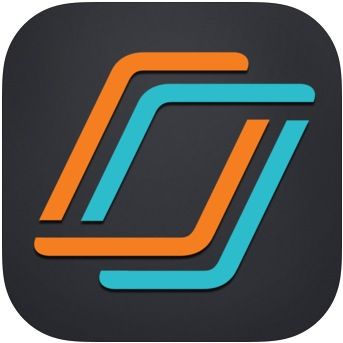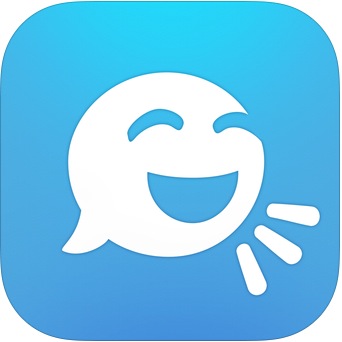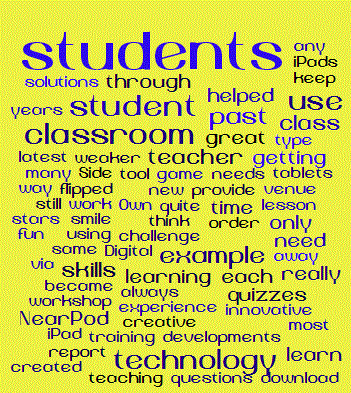Face 2 Face training
Teachers can try to keep up with the latest developments but most don't have the time or inclination to try the latest innovation that arrives via emails or colleague suggestions. Little gets past their filters.
Can your staff name these 4 iPad apps?




In my experience, teachers are most receptive to new ideas if they are given a time away from their offices and constant interruptions, and provided with a quiet venue elsewhere in the school where they can relax with a cup of coffee or tea and a biscuit and be engaged in a workshop tailored to their needs.
If schools can provide the venue, I can provide the workshop. Digital skills training with a human face :)
The demands on teachers' digital skills has grown rapidly over the past few years. Especially if the teachers now have to teach students with tablets. iPads are an obvious example. They are great for consumers - fun and easy to use. But teaching with them can be a real challenge as iPads were originally designed for individual use, not as a classroom learning tool. Getting students to be creative on an iPad and then sharing their work with others on a network is not a simple task for many of the apps. Thankfully many programmers have risen to the challenge and teachers need to keep abreast of the latest developments. NearPod, for example, has transformed itself from a tool for direct lock-step classroom use to something very suitable for a flipped classroom!
But technology isn't only advancing for tablets. In these days of BYOD (Bring Your Own Device) teachers need to think out of the Microsoft box and embrace cross-platform web-based solutions. For example, use Google forms to make quizzes and surveys. Distribute web addresses and documents using justpaste.it, replace PowerPoiint with Prezi.
Keeping up with technology isn't about technology for the sake of technology. Used correctly, it can energise students to learn things that in the past were a chore. Take the example of getting foreign students of English to learn the past tense of verbs. In the past you would present them the list that were being studied and hope that by setting a test they would be motivated to learn them. Instead I created a game where the students had to type the past form of a verb in a sentence. If they got it correct they would earn a star, if wrong they lost 2 stars. The first to get 10 stars were the winners. I started this by getting each student to do it individually but noticed the weaker students became discouraged. So I created teams of 3 with each team having a range of students. I would assign the weakest student to be the typist in each group - and only that student was allowed to type. It became quite a noisy class as the stronger students shouted or spelled out the words. The weaker students were learning by listening and typing. By conducting this game in rounds whereby the students knew they would see the questions several times, there was a lot of incentive to commit the answers to memory. To put this into pedagogical terminology: the students were collaboratively learning via repetitive auditory, visual, and kinesthetic stimuli, and the affective filter was considerably lowered. Flashcards just don't cut the mustard compared to this.


